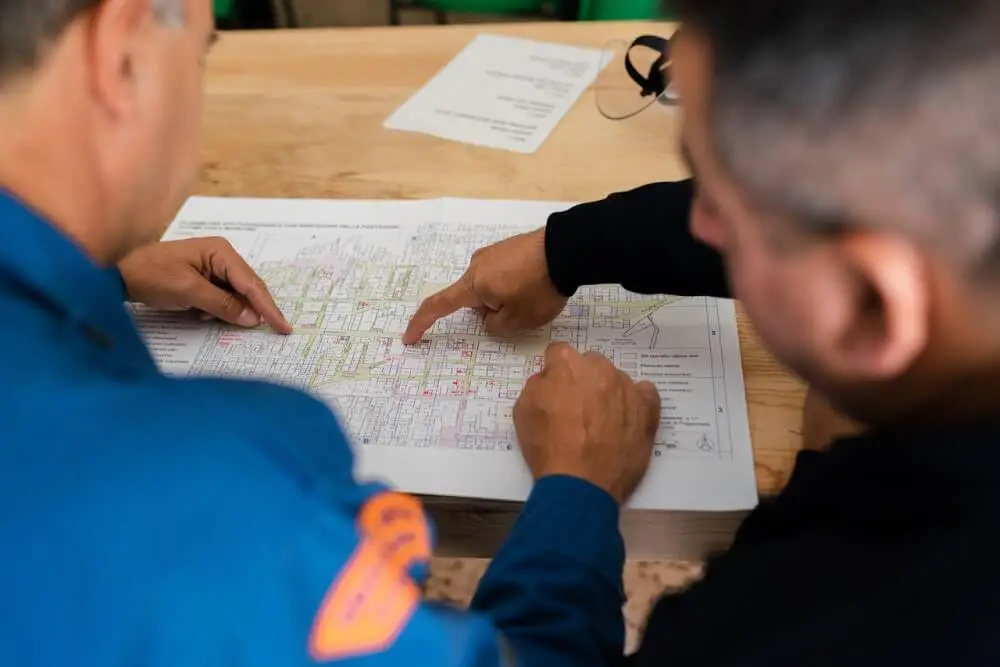An urbanist can be defined as someone who believes in the practice of urbanism, which centres around the implementation and development of livable cities. Urbanists believe that sustainable and highly functional urban centres can be formed through urban design and community-focused planning.
In the process, they support and lobby for measures that will improve the quality of life for a city’s residents. They typically do this through community engagement and dialogue with policy makers, promoting the environmental and societal benefits of urbanism while warning of the dangers of irresponsible urban planning.
As such, urbanists focus on more than just the physical buildings in a city – they address highly important issues such as climate change and social cohesion. They are also likely to address issues with accessibility, which can affect disadvantaged members of society.
Explore our related articles:
Top 20 White Elephant Construction Projects Around the World10+ Amazing L Shaped Buildings from Around the World
25+ Amazing Facts about Battersea Power Station
What is the Tallest Building We Could Build?
Would it be Possible to Build the Pyramids Today?
Which Current Buildings will Last the Longest?
Top 15+ Longest Buildings in the World
Why is a Building Called a Building if it's Already Built?
What do urbanists do?
In pursuit of their beliefs in urbanism, urbanists may perform various tasks and roles. Their overall goal is typically to envision future urban landscapes, and to do this they create tangible plans and strategies to present to the wider public.
These designs go beyond aesthetics, and usually highlight how urban centres can best incorporate green infrastructure, energy efficiency, and sustainable development. A common feature of urbanist strategies is public realm improvements, such as parks, low-traffic streets and landscaping.
Beyond this, urbanists often engage with the wider community, typically through holding public meetings, gathering feedback and approaching key stakeholders. By fostering this dialogue, they aim to empower people across the community to shape their cities.
To bolster their arguments, urbanists in planning roles conduct lots of research and analysis of the potential impacts that certain types of urban design will have. And, following this, they closely monitor the progress of each change, ensuring maximum accountability and improvement.
How do urbanists help with urban development?
Urbanists play a vital role in urban development, utilising their expertise to shape cities in new and innovative ways. They use a combination of creativity and real-world research to design streets, parks, and buildings in ways that are not only aesthetically pleasing but also highly functional.
In particular, urbanists help to promote green infrastructure in urban development, with renewable energy and resource-efficient buildings practices at the forefront of their strategies. The same applies for social equity, with urbanists striving to help those in need of affordable housing and inclusive architecture.
To make this a reality, urbanists may broach key stakeholders in local governments with ideas and methodologies espousing urbanism-led practices. For these stakeholders, urbanists can provide a valuable source of inspiration and help them either justify or alter their existing urban design plans.

What do urbanists believe in?
The overriding belief that all urbanists hold is that cities should be livable for all those that reside in it, regardless of individual circumstances. Within this, there are a few core beliefs that underlie the urbanism movement, such as sustainability, community engagement and innovation.
Essentially, urbanists believe that in order for urban centres to serve their purposes without undue damage to the environment, urban design has to be green-focused and sustainable.
The urgent need to address the environmental impact of urbanisation underpins everything that urbanists do.
As well as this, urbanists believe that cities should not only be livable for most people but for all people. They believe that urban areas’ resources should cater for all social groups, from the lowest income to the highest, in the process creating a fair and equal society that represents everyone.
This belief in social equity is bolstered by the connections urbanists make with the local community. By consulting and liaising with local stakeholders on their plans, urbanists ensure that the voices and perspectives of those affected by urban development are heard and considered.
Meanwhile, urbanists also believe that innovation and flexibility in urban planning is key in helping cities realise their potential. The urbanist worldview contends that cities are dynamic, and that new ideas and concepts are a natural part of their evolution. As a result, their strategies are constantly changing to reflect new technology and research.
Finally, urbanists are also pragmatists, and know that if cities are going to be sustainable and livable they also need to be successful economically. To that end, they centre their plans around job creation, helping local businesses thrive and attracting outside investment.
What skills do urbanists have?
Urbanists come from a wide range of fields, and as such possess a diverse set of skills that range from technical knowledge in design and analytical proficiency to creative thinking. Besides this, urbanists are also typically good at communicating and problem solving.
One of the core skills that skilled urbanists possess is the understanding of visual and functional urban design. To make their principles come to life, urbanists have to know how to design streets, parks, buildings and every other element in relation to each other.
With an eye for the creative, skilled urbanists excel at translating ideas into tangible and captivating designs, and ally this with keen analytical research. To inform their designs, they will explore in-depth behaviour statistics, urban trends and past studies.
Of course, this also means being up-to-date with technical aspects like zoning regulations and planning principles. Knowing where to look and how to navigate these potentially tricky obstacles is a critical-thinking skill in itself, and may only come with years of experience dealing with geographic information systems (GIS) and urban modelling.
Meanwhile, urbanists working on strategies are typically good communicators, as it takes this skill to convey key ideas, build relationships and forge collaborations. Indeed, being able to listen to the many different cross-sections of society is vital, as it allows urbanists to ensure their designs are representative of the whole community.
Lastly, project management skills allow urbanists to navigate the complexities of urban development. They possess the ability to oversee and coordinate diverse stakeholders, manage budgets and timelines, and ensure the successful implementation of urban projects.

Who are some famous urbanists?
There have been several influential figures in the realm of urbanism who have made significant contributions to the understanding and development of cities. While this is not an exhaustive list, here are a few famous urbanists:
- Jane Jacobs: One of the most influential urbanists, Jane Jacobs was a journalist and author most widely known for her groundbreaking book ‘The Death and Life of Great American Cities’. In it, Jacobs criticised slum clearance measures and advocated for community-oriented urban planning and pedestrian-friendly neighbourhoods, paving the way for urbanism as we know it today.
- Jan Gehl: This Danish urban designer is renowned for his people-first architecture and city planning. His focus on cities that prioritise walking and cycling have been hugely influential, and continue to be an inspiration for many an urbanist.
- Ebenezer Howard: In the late 19th Century, English urban planner Ebenezer Howard was the founder of the Garden City movement. Howard’s plan promoted harmony between urban and rural elements, and there are still numerous examples of garden cities throughout Britain today.
- Frederick Law Olmsted: This massively influential landscape architect was known primarily for his creation of urban plans that incorporated large amounts of green space. His most famous project was New York City’s Central Park, which he planned following a visit to Birkenhead Park in England.
- William H. Whyte: This sociologist and urbanist became known for his research on urban public spaces, and what makes cities particularly vibrant. Whyte studied how public spaces are used and analysed how they can help to enliven urban environments.
These people are just some of the many urbanists that have blazed a trail on the field, and their ideas are still very much used as inspiration today.
That’s it for our building wiki on what an urbanist is. What it means to be an urbanist is always changing, but they continue to have a greatly valued impact whenever they are involved in urban design projects.
For more news, compilations and discussions from the world of urban construction and architecture, explore our selection of skyscrapers and tall building articles.
Or, for similar guides to definitions and meanings of terms within the building profession, take a look through our other range of building wikis, including a guide to what is a kop.
Last Updated on 20 July 2023 by Michael
